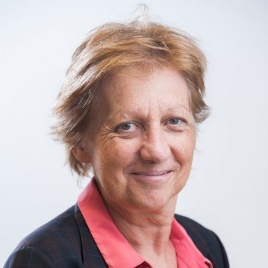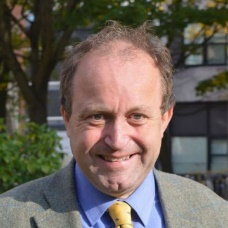- Futures
- Innovation
- Leadership
Creativity in Engineering: Higher Education design and delivery
)
Engineers embrace creativity and innovation to solve problems and meet challenges – including the complex and pressing global challenges faced by modern society. Students are enthused by authentic and relevant engineering experiences. Yet the suboptimal delivery of learning through the ubiquitous “lecture” has prevailed, mainly due to its efficiency at scale, despite having recognised shortcomings since the last millennium.
Modern engineering challenges and the global issues that most enthuse the current generation of students require the application of knowledge of many disciplines. Over recent decades, there has been a lot of discussion about the need to help students learn the “soft skills” such as business, computing, communication, leadership, environmental and social science skills that will help them in their careers as engineers. Universities have in general added projects to already crowded curricula, crammed with “lectures”, laboratories and assignments based on theoretical concepts. And yet, we still hear laments from our industrial colleagues that fresh graduates fall short in these important “higher order” skills.
So what are we doing about it? At TEDI-London we have taken a fresh look at engineering education. Taking a blank sheet of paper, we have developed a curriculum that embraces the process of engineering – of creativity, design and innovation – to create future engineers, engineers with a breadth of skills to help solve global challenges. Engineers make things and engineering students should learn by making things mirroring what they will do when they graduate. And if the projects they work on have been co-created by academics and engineers in industry, there will be dual benefit of improved employability and also being more attractive to potential students.
That leads on to the importance of the power of diversity. Bringing people with different ways of thinking together leads to better innovation and outcomes in both academia and industry. We need to attract a more diverse cohort of students, not just to fill the engineering skills gap (a shortfall of 50,000 engineers per annum in the UK alone), but also to help improve the outcomes from the engineering profession. At TEDI-London we are putting rocket boosters under our efforts to make engineering more inclusive by removing the requirement for A level (or equivalent) maths or physics and, through our innovative assessment process, looking for students who have the appropriate ‘Attitude, Aptitude and Ability’ to succeed on our programmes.
Very important in these attributes is the attitude. To succeed in this transformative education, students will need to take responsibility for their own learning. They will want to learn. And when we bring them together with teachers who want to teach, as opposed to those who focus on research - that’s when “magic” happens.
This article was written by Judy Raper and Mike Sutcliffe.
 Professor Judy Raper has been Dean & CEO of TEDI-London since its incorporation in June, 2019. She joined TEDI-London after a sustained career in Academia in Australia and the USA, most recently as Deputy Vice-Chancellor (Research and Innovation) at the University of Wollongong, a post she held for the last 10 years and senior roles the National Science Foundation, and Missouri University of Science and Technology in the USA, and the first (and only) female Dean of Engineering at the University of Sydney.
Professor Judy Raper has been Dean & CEO of TEDI-London since its incorporation in June, 2019. She joined TEDI-London after a sustained career in Academia in Australia and the USA, most recently as Deputy Vice-Chancellor (Research and Innovation) at the University of Wollongong, a post she held for the last 10 years and senior roles the National Science Foundation, and Missouri University of Science and Technology in the USA, and the first (and only) female Dean of Engineering at the University of Sydney.
 Professor Mike Sutcliffe has strategic responsibility and oversight of operational delivery for the design, development and implementation of TEDI-London’s academic programme as well as the student journey. He is also President of the Engineering Professors’ Council, the representative organisation of UK engineering academics. Mike plays a leading role in the New Approaches to Engineering Higher Education initiative.
Professor Mike Sutcliffe has strategic responsibility and oversight of operational delivery for the design, development and implementation of TEDI-London’s academic programme as well as the student journey. He is also President of the Engineering Professors’ Council, the representative organisation of UK engineering academics. Mike plays a leading role in the New Approaches to Engineering Higher Education initiative.
Recommended Content
-
In conversation with Eduardo Briceño
28 Feb 2022 Eduardo Briceño, Growth Mindset Keynote SpeakerBett 2022 keynote speaker and growth mindset expert Eduardo Briceño shares his thoughts on the role of growth mindset in a time of unprecedented disruption and what this means for the education commun ... -
Esports: Not just for the players
28 Feb 2022 Written by Laura HallEsports is quickly becoming one of the fastest growing sectors for education. -
Microsoft Education tools that supported learning in 2021
20 Jan 2022 By Microsoft Education TeamMicrosoft looks back on what resources changed the game for teaching and learning in 2021.

)
)
.png/fit-in/500x500/filters:no_upscale())
)
)
)
)
)
)
)
)
)